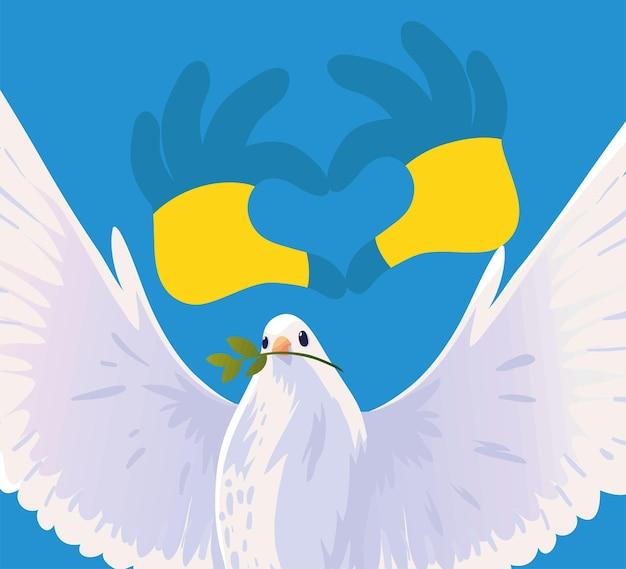Welcome to my blog post discussing the timeless tale of Daedalus and Icarus! This captivating myth is packed with adventure, cautionary lessons, and an underlying message that resonates with readers across generations. Join me as we dive into the intriguing story of a father and son, a pair of wings, and the consequences of daring to fly too close to the sun.
In this blog post, we will explore the main themes, character motivations, and the resolution of Daedalus and Icarus. We’ll uncover why Daedalus left his coveted wings, what Icarus truly desired, and why their tragic journey ends in sorrow. Furthermore, we’ll examine the significance of the settings and the warnings Daedalus gives to his daring son. Reflecting on the story’s purpose and the aftermath of Icarus’s fate, we will also draw valuable lessons that we can apply to our own lives.
Get ready to embark on an enlightening exploration of Daedalus and Icarus, a tale that continues to teach us profound wisdom even in the modern age. So let’s spread our wings and soar into the depths of this captivating myth!
The Meaning Behind Daedalus and Icarus: A Lesson in Ambition and Hubris
Understanding the Moral of the Fable
Fables have always been an excellent way to teach valuable life lessons, and the story of Daedalus and Icarus is no exception. This ancient Greek myth, attributed to the master craftsman Daedalus and his overzealous son, Icarus, holds a timeless message that resonates even in today’s world. So, what is the message of the story Daedalus and Icarus? Let’s unravel it together!
The Dangers of Overambition
In this cautionary tale, the message lies in the consequences of unchecked ambition. Daedalus, a brilliant inventor and master craftsman, built wings for himself and Icarus to escape their imprisonment in Crete. Although Daedalus warned Icarus not to fly too close to the sun or the sea, the young boy’s ambition got the best of him, and he soared higher and higher, beaming with his newfound freedom. Ignoring his father’s counsel, Icarus flew too close to the sun, causing his wings, made of wax, to melt. As a result, he plummeted into the unforgiving sea.
Balancing Aspiration and Limitations
The story serves as a reminder of the importance of finding the right balance between ambition and prudence. While ambition can propel us to achieve great feats, it is crucial to recognize our limitations and respect the boundaries set by those who possess greater knowledge and experience. Daedalus, being the wise and cautious figure in the story, represents the need for guidance, temperance, and rational decision-making.
The Perils of Hubris
Furthermore, Daedalus and Icarus shed light on the peril of hubris, an excessive and arrogant pride. Icarus’s defiance of his father’s instructions and his belief that he could conquer the skies ultimately led to his downfall. This cautionary tale serves as a potent metaphor for the dangers of hubris, as it showcases the tragic consequences that arise from arrogance and an inflated sense of self-importance.
The Art of Letting Go
Lastly, the tale reminds us of the importance of letting go and accepting the consequences of our actions. Daedalus, despite his grief over the loss of his son, learned from the tragedy and carried on, imparting the story for generations to learn from. This aspect of the message highlights the significance of resilience and the ability to accept and grow from our mistakes or unfortunate circumstances. It encourages us to embrace the lessons learned and move forward, even in the face of adversity.
In summary, the story of Daedalus and Icarus encompasses a multifaceted message, emphasizing the perils of unchecked ambition, the dangers of hubris, the importance of wise guidance, and the art of letting go. It reminds us to find the balance between ambition and prudence, recognizing our limitations while daring to dream big. Let this ancient Greek myth serve as a guiding light as you navigate through the boundless sky of life, always mindful of the sun’s scorching rays and the sea’s treacherous depths.
FAQ: What is the message of the story Daedalus and Icarus
Why did Daedalus leave his wings
Daedalus left his wings behind because he was a smart cookie who didn’t want to be recognized as the winged wonder everywhere he went. Plus, let’s be honest, wings can cramp your style when you’re trying to fly under the radar.
What did Icarus really want
Icarus, bless his adventurous soul, wanted to feel the wind beneath his wings and experience the exhilaration of soaring through the sky like a bird. He had big dreams and an even bigger desire for freedom.
What is the resolution of Daedalus and Icarus
The resolution of the story takes a tragic turn when poor Icarus, fueled by his youthful hubris, flies too close to the sun despite his father’s warnings. His wings made of wax melt, and he plummets into the sea. Daedalus, left heartbroken, mourns the loss of his daring son.
Why is Daedalus unhappy at the end of the story
Daedalus is understandably unhappy at the end of the tale because he has lost his beloved son, Icarus. Despite his warnings and attempts to protect him, Icarus paid the ultimate price for his reckless disregard. It’s enough to break any father’s heart, really.
What is the message of the story Daedalus and Icarus
Ah, the profound message of Daedalus and Icarus! It teaches us the importance of heeding the wisdom of those who have more experience. It reminds us of the perils of letting our pride and ambition overshadow reason and caution. It’s like a flashing neon sign saying, “Listen to your elders, kids!”
What are the settings of Daedalus and Icarus
The story of Daedalus and Icarus takes place in two primary settings. It begins on the island of Crete, where they are imprisoned in the towering labyrinth. The second setting is the vast open sky, where Icarus takes his infamous flight and meets his tragic fate.
What did he warn Icarus not to do, and did he unfollow? What happened to Icarus
Daedalus warned Icarus not to fly too close to the sun, as the intense heat would melt his wings made of wax. Unfortunately, young Icarus let his excitement and curiosity get the best of him. He decided to disregard his father’s advice, flew too high, and, well, let’s just say it didn’t end well for him. Splash! The poor guy ended up as fish food in the Aegean Sea.
How does Icarus get himself into a difficult situation
Icarus, being the daredevil that he is, gets himself into a sticky situation by flying higher and higher without heeding his father’s words of caution. He let his rebellious spirit and thirst for adventure lead him astray, and before he knew it, his wings got closer to the sun than a bug to a zapper.
What is the purpose of Icarus’ story
The purpose of Icarus’ story is to serve as a timeless cautionary tale. It reminds us to strike a balance between our ambitions and the boundaries of reality. It warns against the dangers of unchecked hubris and the catastrophic consequences that can arise from ignoring the wise counsel of our elders.
Who are the major characters of Daedalus and Icarus
The major characters of Daedalus and Icarus are the ingenious craftsman Daedalus himself and his impulsive son, Icarus. Daedalus, the mastermind behind the notorious labyrinth in Crete, is known for his inventive mind. Icarus, on the other hand, is the epitome of youthful exuberance and an insatiable thirst for adventure.
Why does Daedalus tell Icarus not to fly high
Daedalus advises Icarus not to fly high because he knows that the sun’s scorching rays have the power to melt his wings made of wax. It’s like telling someone not to touch a hot stove—simple survival wisdom that Icarus foolishly chose to ignore.
What is the message of Icarus
The message conveyed through Icarus’ ill-fated flight is a powerful one. It teaches us that unchecked ambition, when combined with youthful impulsiveness, can have dire consequences. It’s a gentle reminder that we are not invincible and that sometimes, the best path forward is the one marked by caution and wisdom.
What happened to Daedalus after Icarus died
After the tragic demise of Icarus, Daedalus was left devastated and grief-stricken. However, he did manage to escape the wrath of King Minos (who wasn’t particularly pleased with their little escape act) and found solace in exile. Daedalus continued to use his incredible talents, creating innovative designs and leaving behind a legacy in the field of architecture and invention.
What can we learn from Icarus
Icarus, despite his untimely demise, imparts valuable lessons for us all. His story serves as a reminder to listen to the advice of our elders, to strike a balance between dreams and reality, and to approach our aspirations with a healthy dose of humility and thoughtful consideration. It’s the classic tale of learning from the mistakes of others, so we don’t end up flapping our wings too close to the sun.
What did Daedalus warn Icarus not to do at the climax
As we reach the climax of the story, Daedalus warned Icarus against his soaring ambitions by specifically instructing him not to fly too close to the sun. It was a critical moment where the tension between youthful rebellion and paternal guidance reached its peak, setting the stage for the tragic events that followed.
What is the main theme of the flight of Icarus
The main theme of the flight of Icarus can be summed up in one word: hubris. The tale serves as a cautionary reminder that pride and reckless ambition can lead even the brightest of us to our downfall. It’s a potent reminder of the delicate balance between aspiration and humility.

